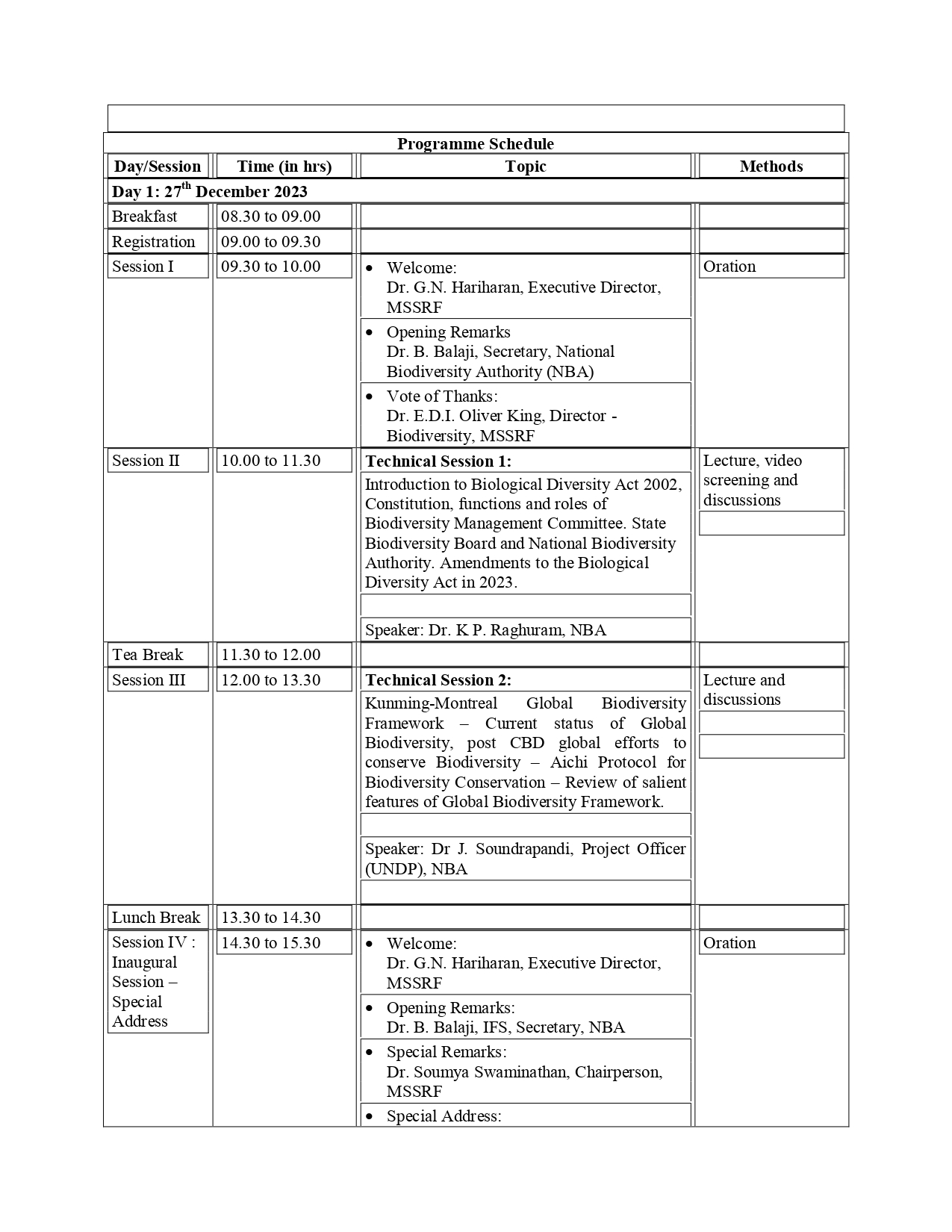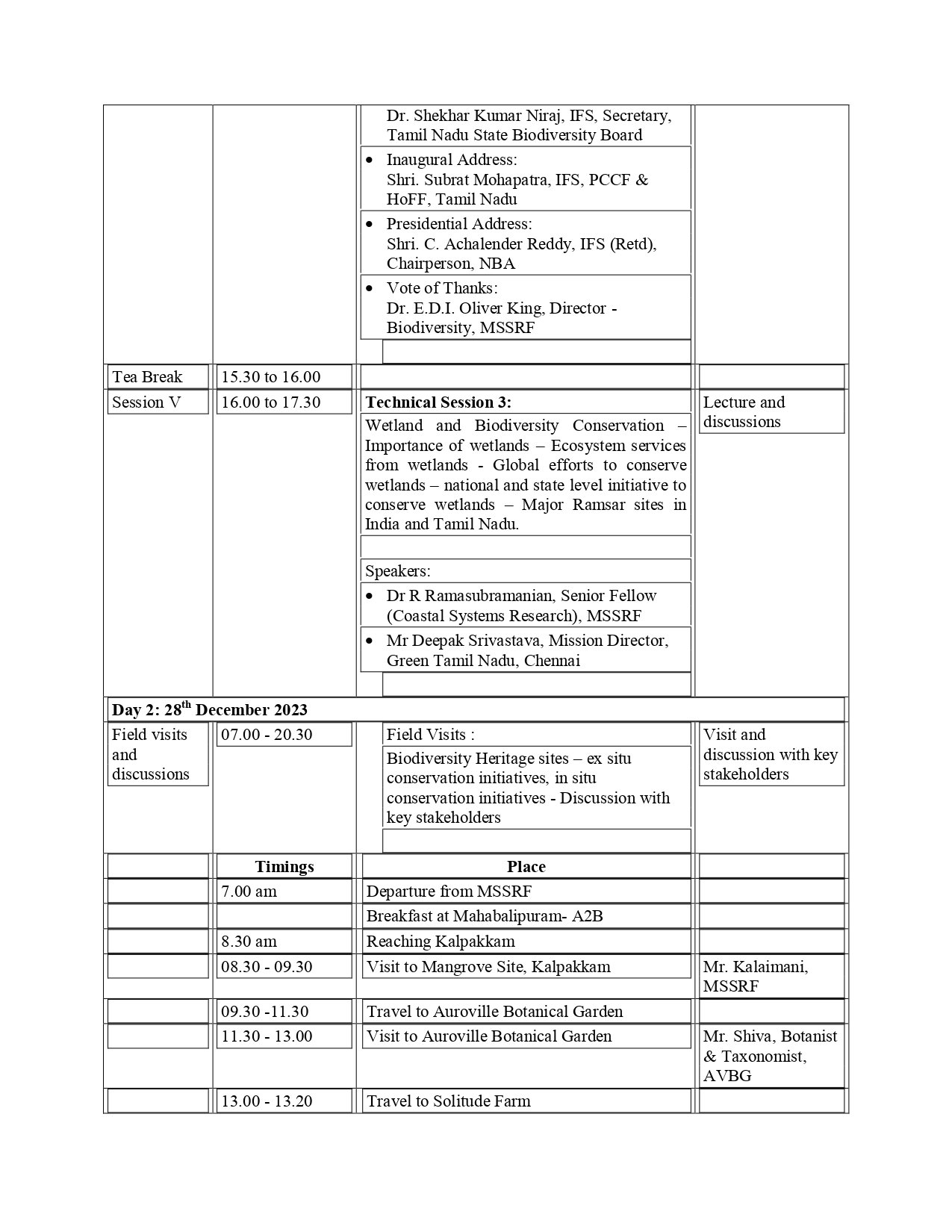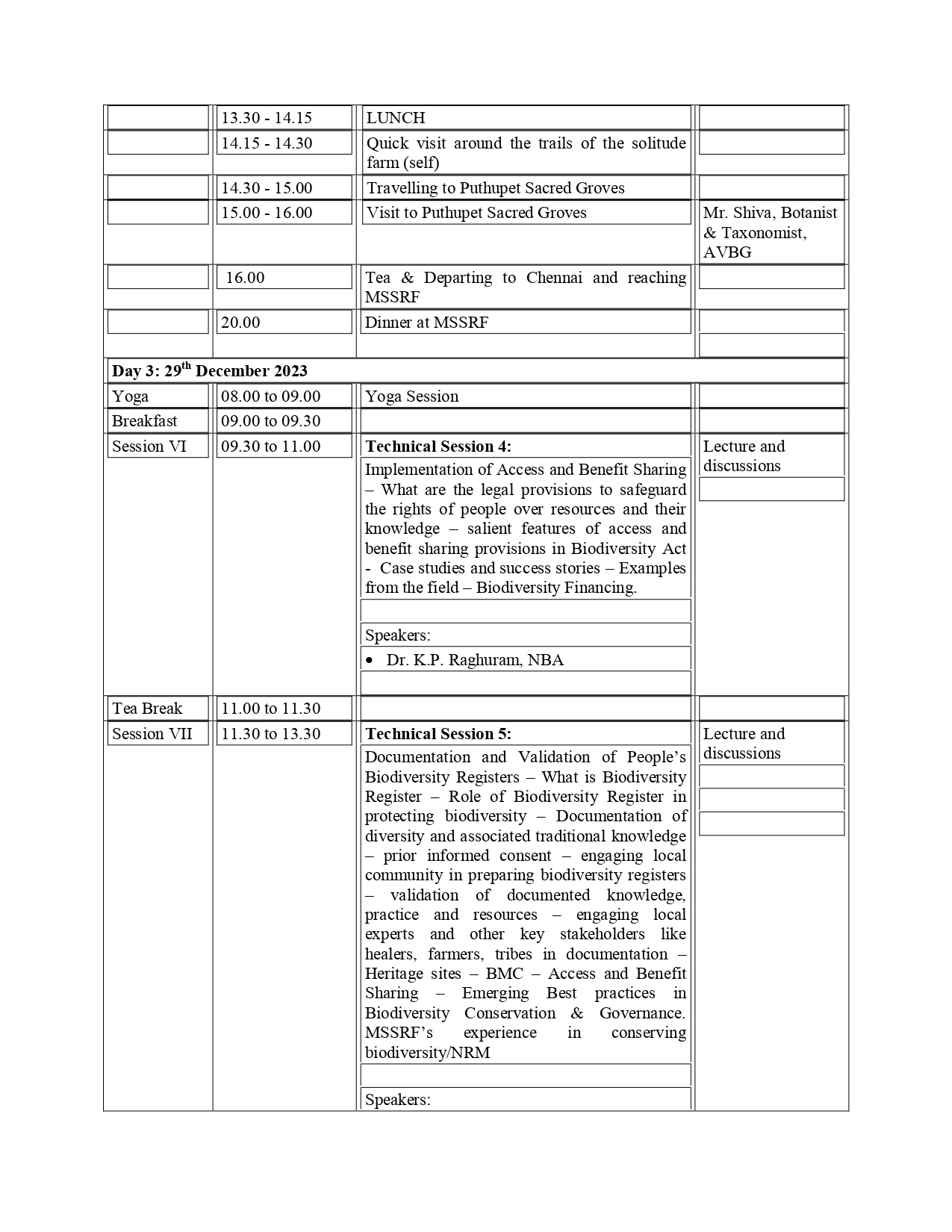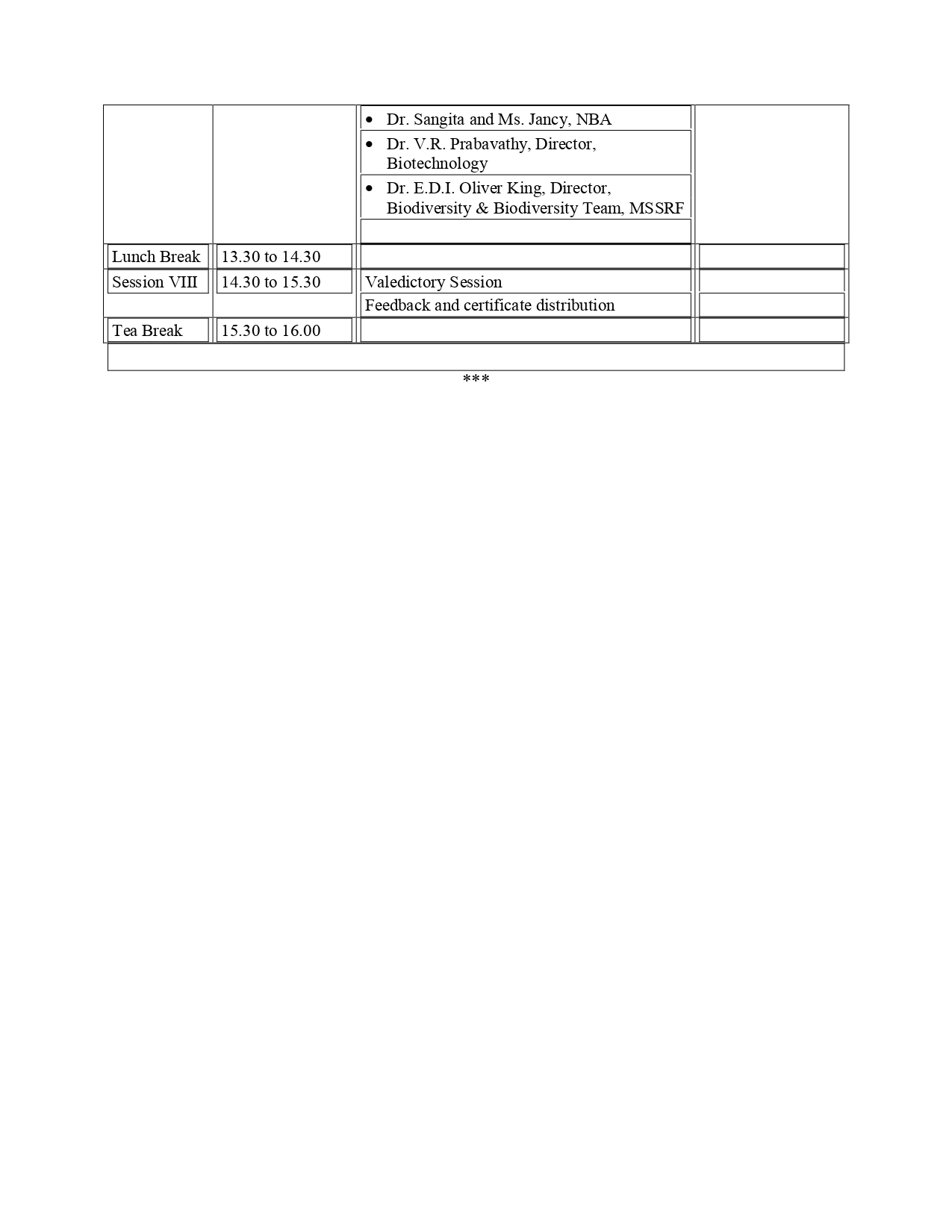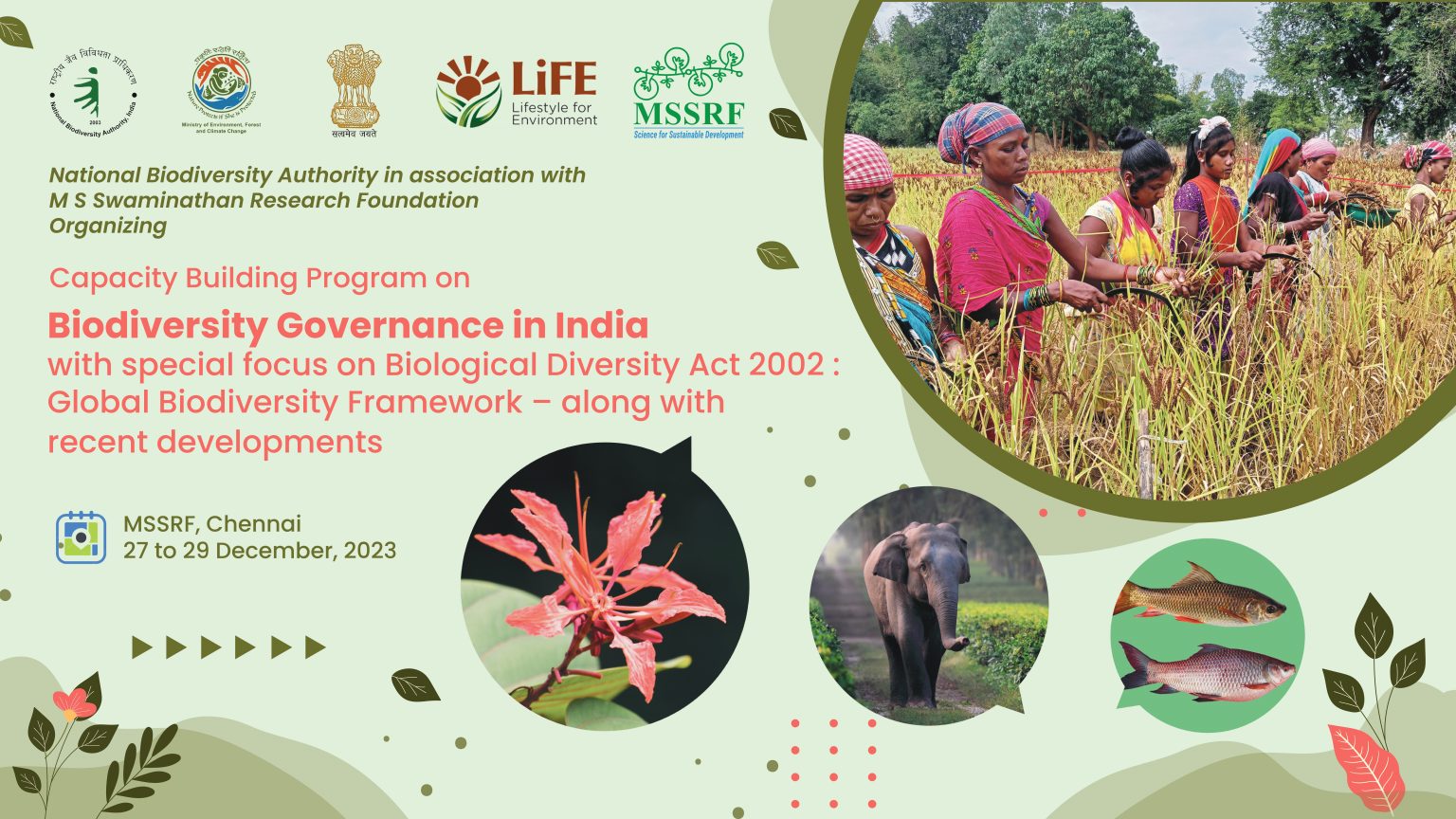Capacity Building Programme on Biodiversity Governance in India with special focus to Indian Biological Diversity Act 2002
NATIONAL BIODIVERSITY AUTHORITY (NBA)
and
M S SWAMINATHAN RESEARCH FOUNDATION (MSSRF)
Venue: Sambasivan Auditorium, MSSRF, Taramani, Chennai
Dates: 27 to 29 December, 2023
Participants: Class II and Class III officials/college teachers of Government of Tamil Nadu
In pursuance to the Convention on Biological Diversity (CBD), Government of India enacted the Biological Diversity (BD) Act in 2002, notified the Rules in 2004, and formulated the guidelines for access and benefit sharing (ABS) of biological resources in 2014. This legal framework has served well to achieve the goals of conservation of biodiversity, sustainable utilization of biodiversity and fair and equitable sharing. The BD Act further provides a decentralized three-tier institutional structure at the National level – National Biodiversity Authority (NBA), State level – State Biodiversity Board (SBB) and Local level – Biodiversity Management Committee (BMC) for its implementation.
India is committed to conserve its biodiversity, and implement strategies designed under Global Biodiversity Framework. Biodiversity Act 2002 proposes various measures to safeguard our biodiversity, ensure its sustainable and equitable use and developed guidelines for access and benefit sharing. State Biodiversity Board is acting as a nodal agency at state level and coordinating the biodiversity conservation activities visualized in the Biodiversity Act. National Biodiversity Authority is responsible for appropriate measures and strategies at national level to conserve our biodiversity.
Biodiversity Management Committees (BMCs) have been formed across the country for implementing the provisions under Biodiversity Act and work in partnership with respective local self-governments. There are officials (district/state/national) entrusted with the implementation of provisions under Biodiversity Act especially the Class II and Class III officials in the state has a proactive role in effective implementation of the provisions in the Act.
Purpose of the Programme
Strengthening the capacity of Class II and Class III officials of Forest Department and other stakeholders is essential to deal with recent amendments in Biodiversity Act, coordinating conservation activities with local communities and implementing the national commitments under Global Biodiversity Framework. In this context, MSSRF is proposing to conduct a three-day training programme for Government officials coming under Class II and III categories.
This proposal is visualized to build the capacity of Class II and Class III officials of Forest Department and other stakeholders on “Biodiversity Governance in India with special focus to Indian Biological Diversity Act 2002 and Global Biodiversity Framework – along with recent developments.
The primary objective of the training programme is to build the capacity of the Class-II & Class-III Officers of Forest Department and other stakeholders, develop an understanding about the biodiversity and the implementation of the Biological Diversity Act, roles and functions of BMCs, purpose and methods of preparing People’s Biodiversity Register (PBR) and electronic PBR (e-PBR), concept of Biodiversity Strategy and Action Plan, Biodiversity Governance at the level of local body and its linkage with Gram Panchayat Development Plan (GPDP) etc. The proposal has a target of training 30 Class-II and Class-III Officers from Tamil Nadu. The training programme will cover broad areas of concerns related to the latest amendments in the biodiversity policies and implications. National Biodiversity Authority (NBA) is the key knowledge and resource partner in the proposed programme and expertise will be drawn from National Biodiversity Authority, State Biodiversity Board, Academic Institutions, Expert Consultants. Resource materials (training manuals / books/ brochures/ films/ animated movies etc) available and developed by MSSRF in English and Tamil would be utilized.
